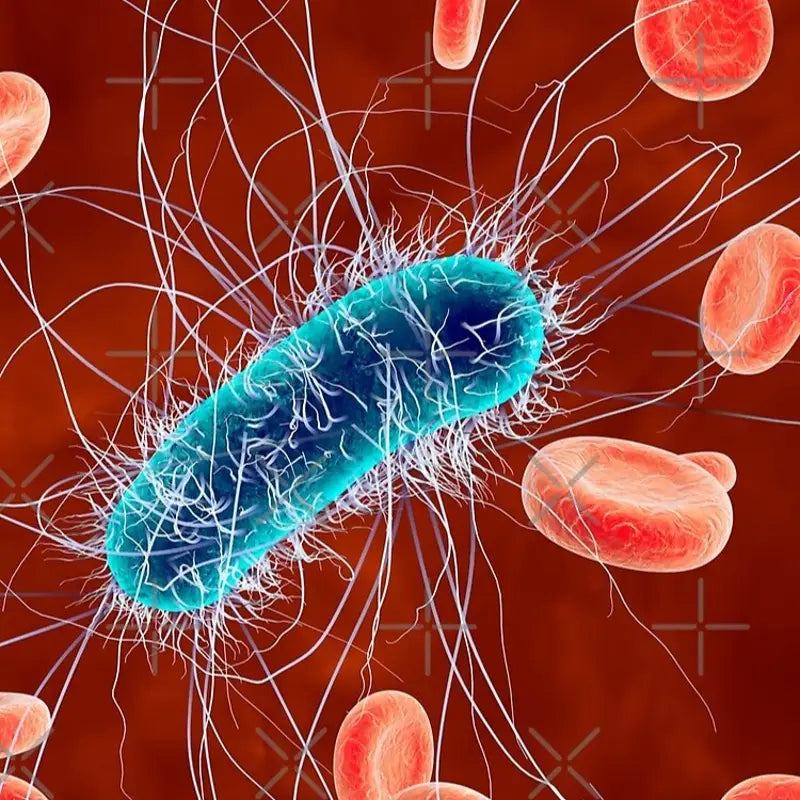Did you know that foodborne illnesses affect millions of people each year, with Escherichia coli (E. coli) being a significant culprit? According to the Centers for Disease Control and Prevention (CDC), E. coli infections lead to approximately 265,000 illnesses annually in the U.S. alone. As the popularity of organic foods continues to rise, many consumers mistakenly believe that these products are immune to contamination. However, the truth is that without proper cleaning and food safety practices, organic foods can also harbor harmful bacteria like E. coli. This article will emphasize the importance of cleanliness and safe food handling to prevent E. coli contamination in organic foods.
Understanding Escherichia coli
Escherichia coli is a type of bacteria that resides in the intestines of healthy humans and animals. While most strains are harmless, certain pathogenic strains can cause severe foodborne illnesses. These harmful strains can lead to symptoms such as diarrhea, abdominal pain, and vomiting, and can be particularly dangerous for young children and the elderly.
Sources of contamination often include contaminated soil or water used during the cultivation of organic produce. Improper handling during harvesting, distribution, and preparation can also introduce E. coli into organic foods. Understanding these sources is crucial for consumers who wish to enjoy the health benefits of organic eating while minimizing the risk of illness.
Importance of Cleanliness in the Kitchen
The importance of cleanliness in the kitchen cannot be overstated, particularly when it comes to preparing organic foods. A clean kitchen environment is the first line of defense against foodborne illnesses. Keeping kitchen surfaces clean helps prevent cross-contamination and reduces the likelihood of harmful bacteria being transferred to food.
Proper food storage also plays a key role in preventing foodborne illness. Storing organic and non-organic foods separately can help minimize the risk of cross-contamination. It's essential to use appropriate containers that prevent leaks and contamination, ensuring that all food remains safe to eat.
Using effective kitchen cleaning products is another critical component of food safety. Opt for eco-friendly options that are tough on bacteria but safe for your food. This approach not only protects your family’s health but also contributes to a more sustainable lifestyle.
Safe Food Handling Practices
When it comes to safe food handling, adopting best practices at the grocery store can make a significant difference. Follow these grocery shopping tips to ensure you bring home safe organic foods:
- Choose organic produce that appears fresh and undamaged.
- Select items from the back of the shelf, as these are often newer and less likely to have been mishandled.
- Avoid products that are past their sell-by dates, as they may harbor bacteria.
Once you’ve brought your organic foods home, it’s essential to wash them thoroughly. Cleaning fruits and vegetables under running water helps remove dirt and bacteria. For leafy greens, consider using a vegetable brush to ensure all surfaces are scrubbed clean.
Additionally, disinfecting cutting boards and utensils after each use is vital for preventing cross-contamination. Use separate cutting boards for raw meats and fresh produce to minimize the risk of E. coli spreading.
Organic Foods vs. Conventional Foods
Understanding the distinctions between organic versus conventional foods can help consumers make informed choices. Organic farming practices focus on sustainability and minimizing chemical use, which often leads to higher nutrient content in the produce. However, these practices do not eliminate the risk of contamination from bacteria such as E. coli.
Despite these risks, the benefits of organic food include fewer pesticides and a more environmentally friendly growing process. To ensure the safety of organic foods, rigorous food safety testing must be implemented to confirm they meet health standards. Consumers should be aware that organic does not automatically mean safe, making food safety education crucial for informed choices.
Practical Cleaning Tips for Your Kitchen
Implementing effective cleaning strategies is essential for maintaining a safe kitchen environment. Here are some practical tips for cleaning kitchen utensils effectively:
- Rinse utensils with hot water immediately after use to prevent bacteria from setting in.
- Use a mixture of vinegar and water as a natural disinfectant to sanitize utensils.
- Allow utensils to air dry after washing, as this further helps reduce bacteria.
The importance of kitchen cleanliness cannot be overstated when it comes to minimizing the risk of E. coli contamination. By maintaining a clean kitchen, you protect your family from potential health risks associated with foodborne illnesses.
In the unfortunate event of suspected E. coli contamination, it's vital to report the issue to health authorities and follow up with appropriate medical care.
Conclusion
In summary, while organic foods offer many benefits, they are not exempt from the risks associated with E. coli contamination. Understanding the sources of this harmful bacteria and the significance of cleanliness is paramount for anyone who enjoys organic produce.
By adopting safe food handling practices and ensuring that your kitchen remains clean, you can significantly reduce the risk of foodborne illness. For additional peace of mind, consider using the Milerd Detoxer to enhance your food safety practices, ensuring that you and your family enjoy healthy and safe meals at home.


Lasă un comentariu
Acest site este protejat de hCaptcha și hCaptcha. Se aplică Politica de confidențialitate și Condițiile de furnizare a serviciului.